- 한국어
- English
- 日本語
- 中文
- العربية
- Español
- Français
- Deutsch
- Pусский
- Tiếng Việt
- Indonesian
By Honorary Reporter Majid Mushtaq from Pakistan
Photo = Majid Mushtaq
This year marks not only the 70th anniversary of the Korean War's outbreak, but also the 70th anniversary of a Korean War atrocity in the village of Nogeun-ri in Yeongdong-gun County, Chungcheongbuk-do Province. To inform the world of this massacre and show sympathy toward the victims' families, the No Gun Ri Global Peace Forum was held from Nov. 10-12 under the theme "70th Anniversary of No Gun Ri Incident, A Big Step Toward Peace and Reconciliation."
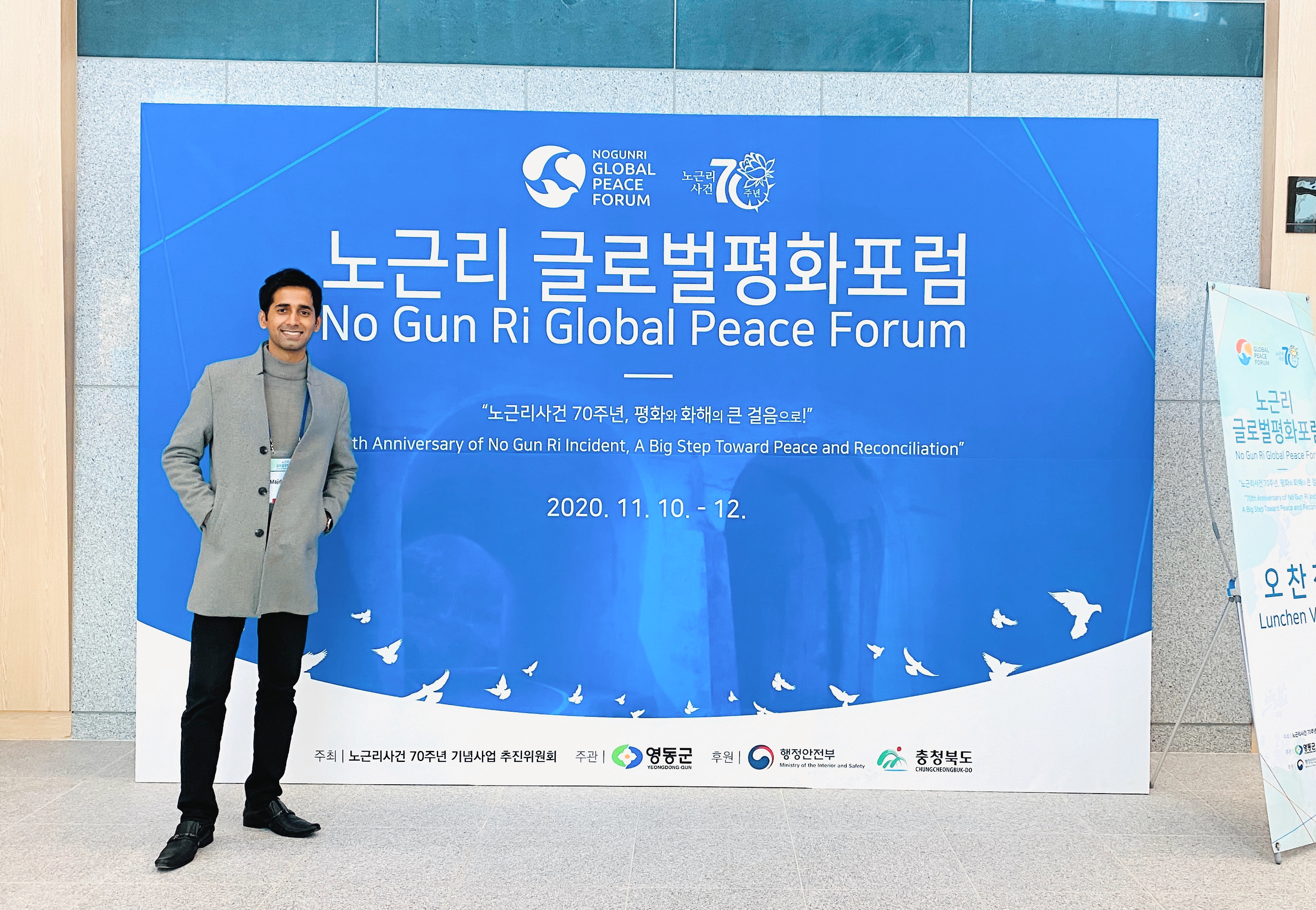
Being a Korea.net Honorary Reporter, I had the privilege of attending the forum with other Honorary Reporters and Korea.net staff, and was touched by what the main speakers had to say. Let me first share the history of this incident.
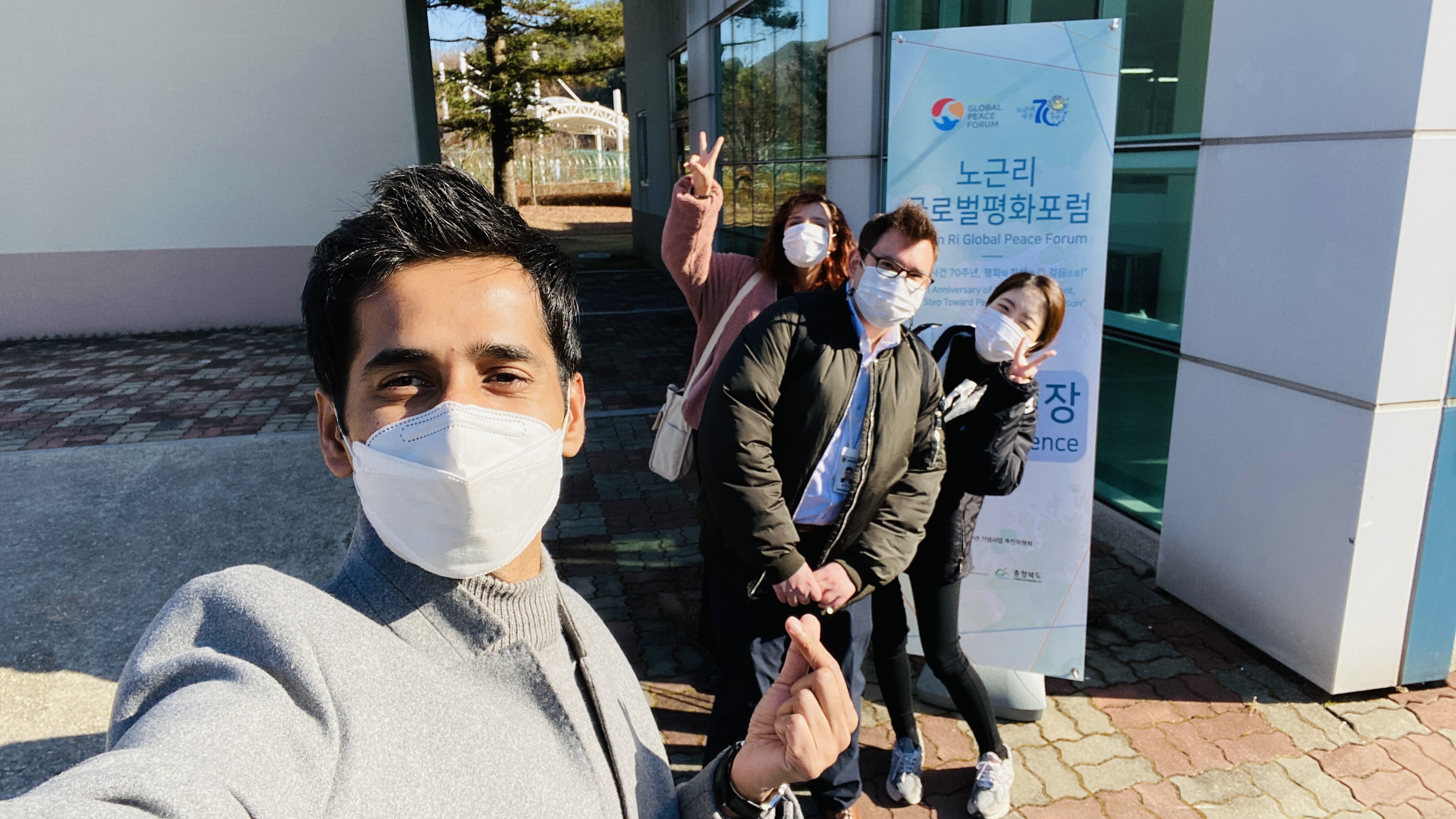
In 1950, American ground troops committed a civilian massacre that was one of the most brutal incidents in Korean history. The atrocity occurred from July 25-29 that year in the vicinity of Nogeun-ri, a village 160 km southeast of Seoul.
The U.S. Air Force bombed a refugee column with more than 600 people, killing many of them. Those who survived were detained inside a bridge for four days. Seventy hours later, 400 of the civilians were brutally killed by American soldiers.
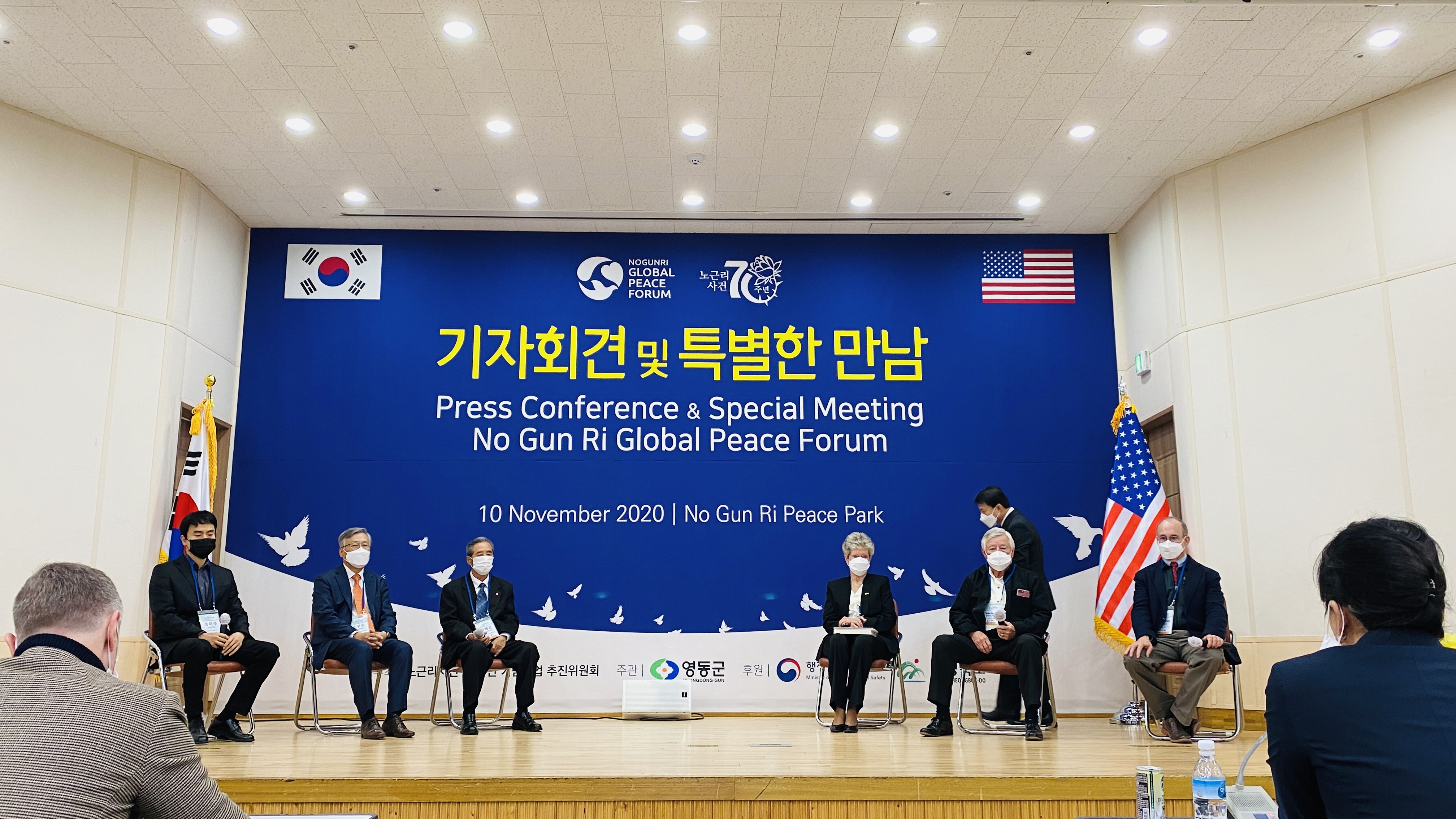
In 2004, a reinvestigation of the incident found that 226 unarmed civilians were killed in the massacre, with 72% being women and children. A memorial to the victims was built in the form of No Gun Ri Peace Park. The U.S. government has yet to issue an official apology for the incident, but U.S. President Bill Clinton in 2001 gave a public statement to show solidarity with the Korean people, particularly the victims.
Purpose
The forum was held at the park and Yeongdong Multicultural Arts Center to remember the massacre. Peace scholars and activists, politicians and government officials from all over the world were invited. The purpose was to condemn any incident that violates human rights, promote peace and love, and honor the victims.
Main Speakers
The main speakers were Jorja Reyburn, daughter of James Homer Elliot, an American first lieutenant who went missing in action during the war; her husband Clyde Reyburn; and Edward P. Forney, the grandson of an American veteran of the war.
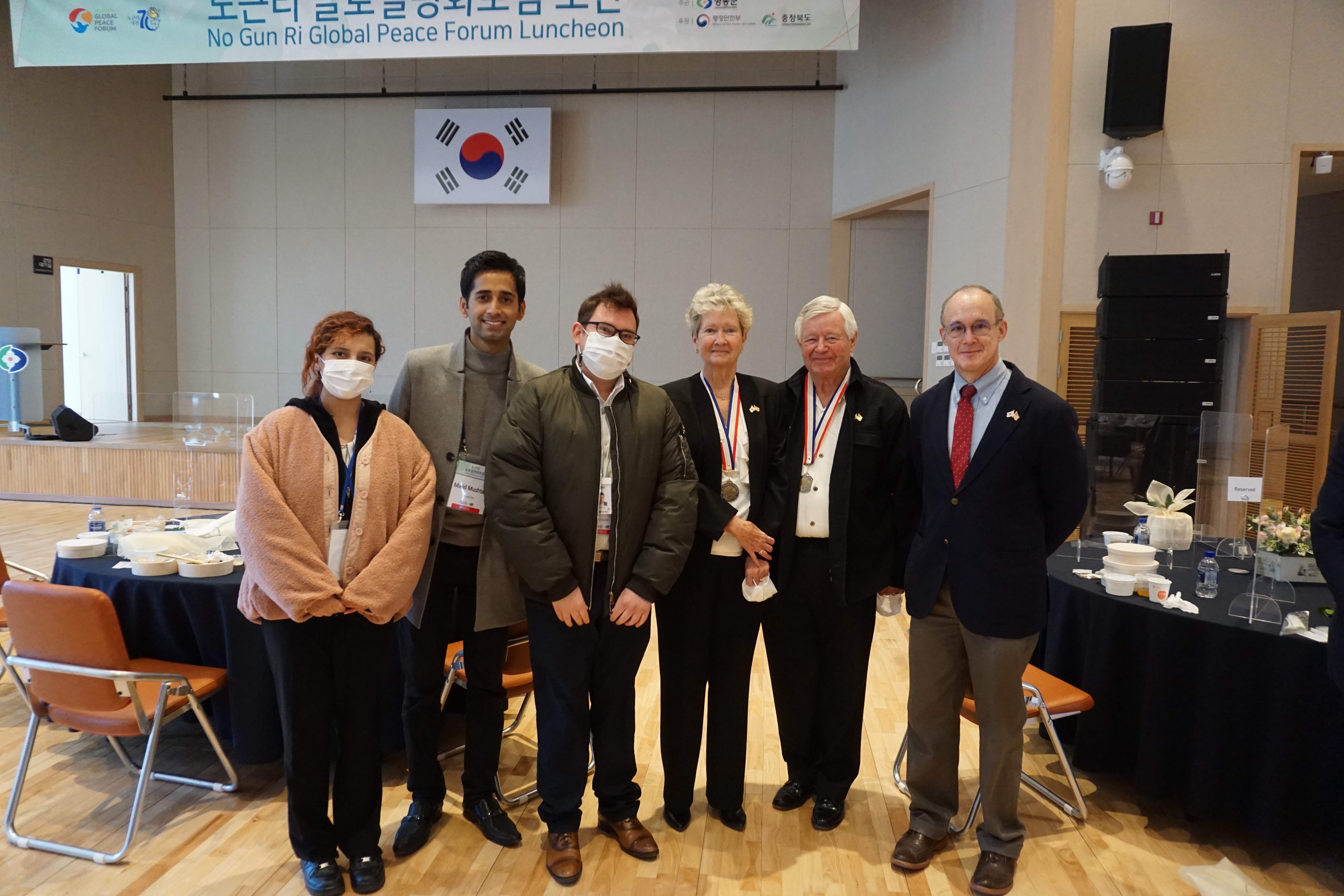
The event started with introductory remarks and congratulatory messages through videos from Prime Minister Chung Sye-kyun and Hiroshima (Japan) Mayor Kazumi Matsui. Later, Chung Koo-do, chairman of the No Gun Ri International Peace Foundation, gave a welcoming speech followed by speeches by the main guests.
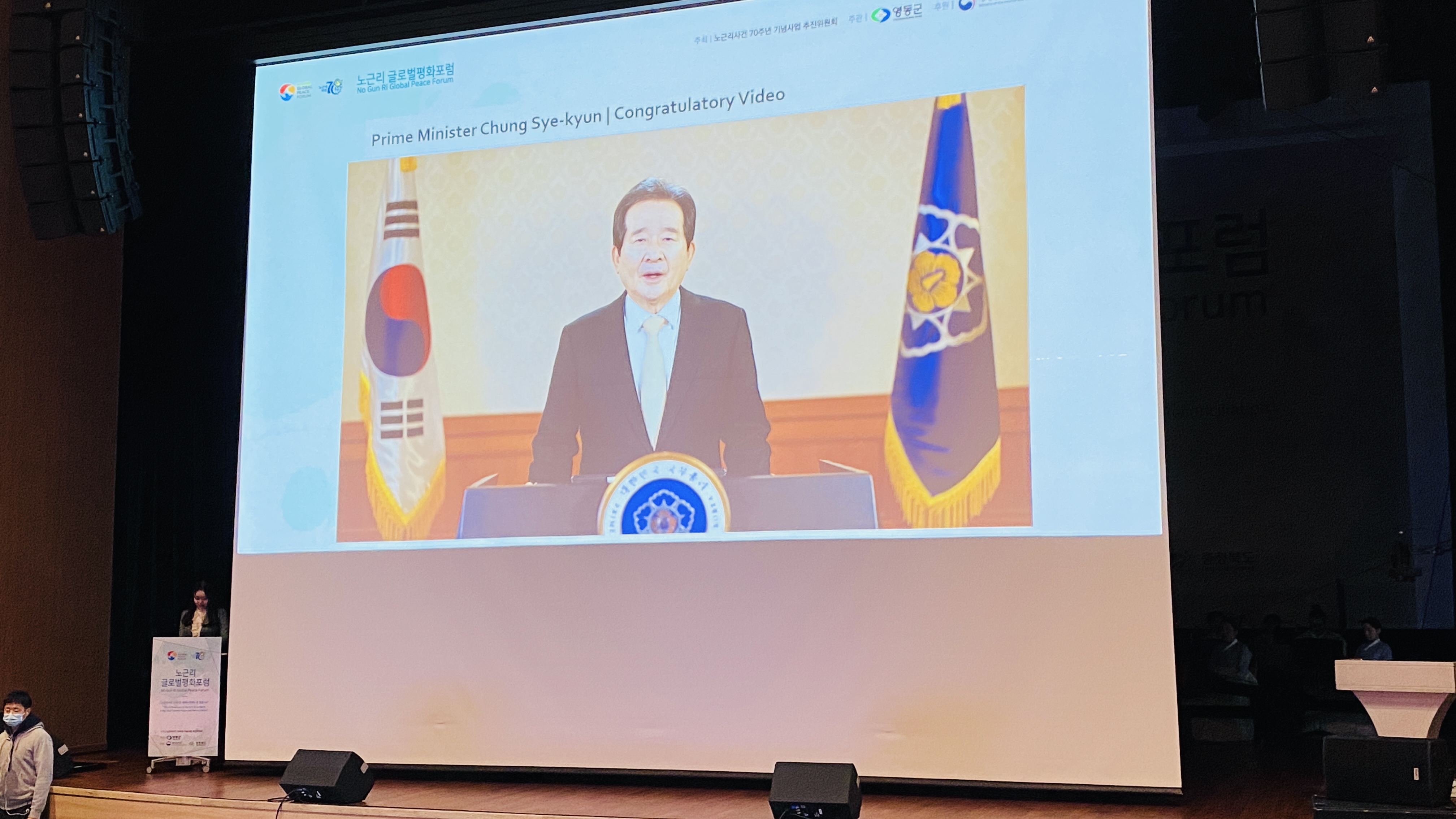
Jorja Reyburn read her letter to the Korean people, and it began like this:
"This is the most heartbreaking letter I have ever written. It is difficult for me to fathom how human beings could kill fellow human beings. The incident at No Gun Ri was especially egregious, difficult to accept and should not have happened."
She concluded by saying, "I appreciate the efforts of the incident victims extending their olive branch for the future. In closing, may I suggest that perhaps we can help each other heal and cooperate to pass down the lesson of the war and the No Gun Ri incident. This is the land where my father, and now my mother, rest and my second hometown."
Forney stressed the importance of remembering history and preventing a recurrence of such an event, saying everyone, especially journalists, must spread what was said at the forum to the world.
Reyburn talked of how her father served Korea and her love for the country. Visiting Korea for the first time in 2015, she said she was overwhelmed by the kindness of Koreans.
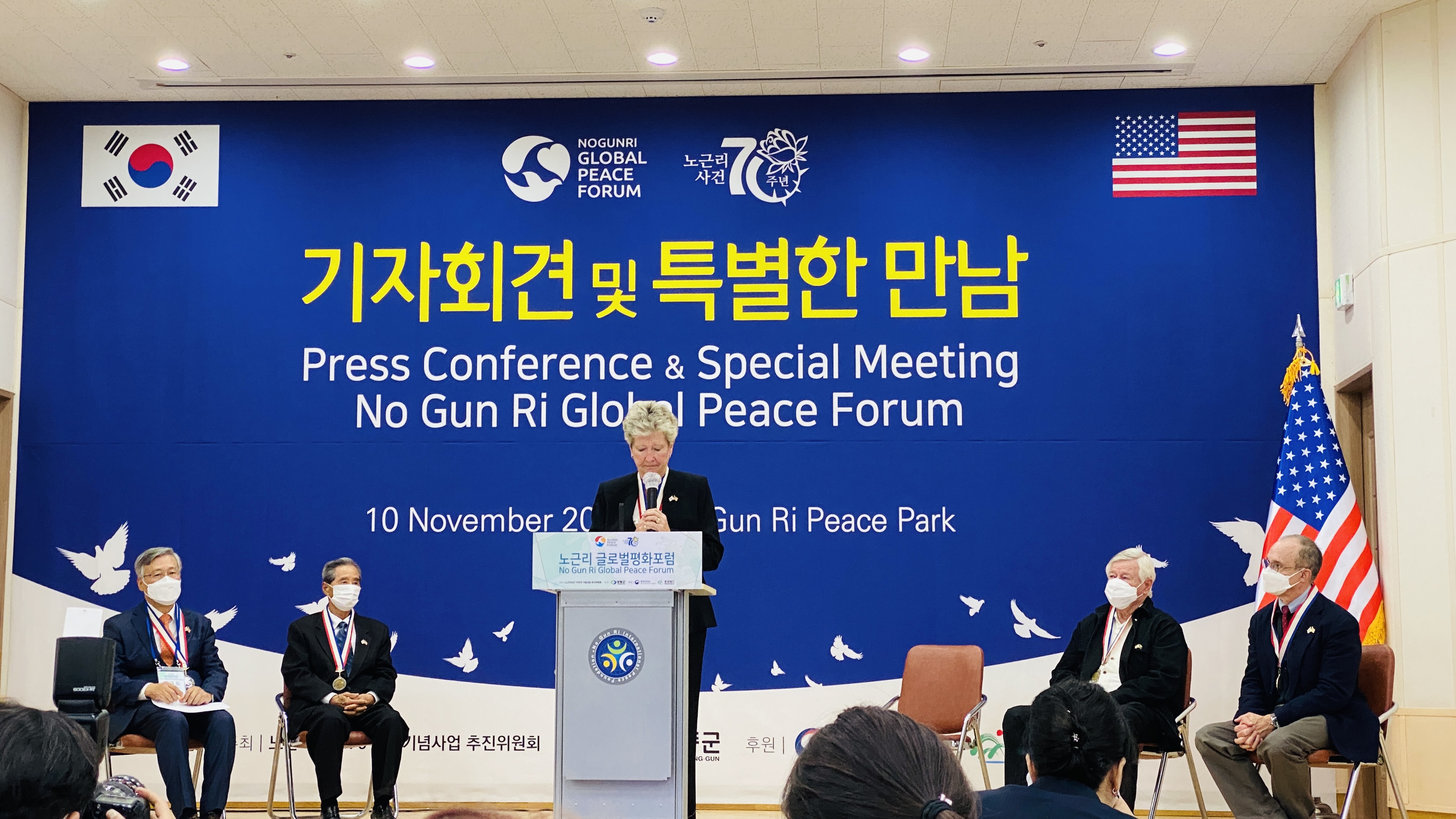
The forum's guest speakers and participants were served a delicious lunch.
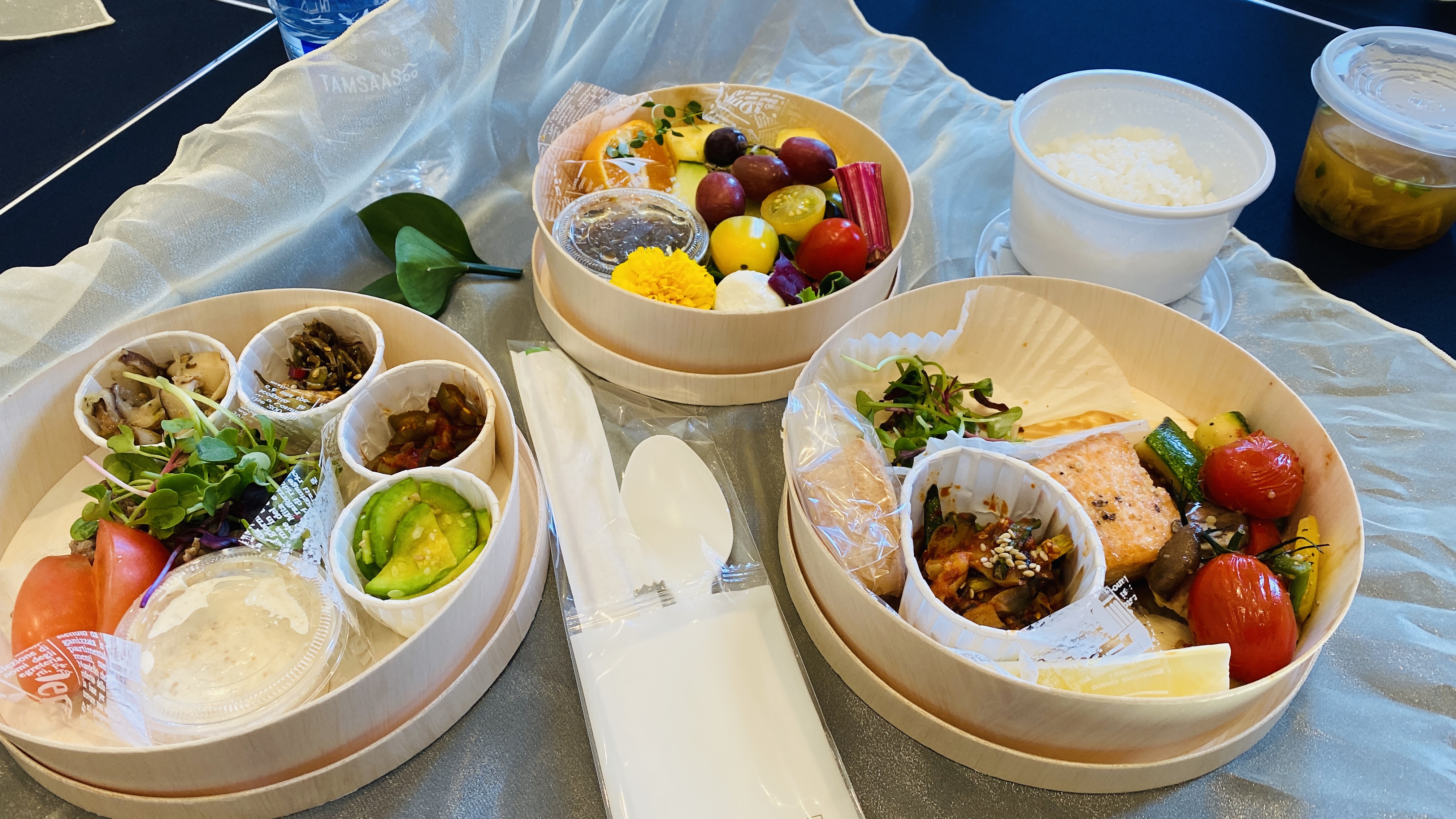
After the meal, a roundtable session, a keynote speech by Leymah R. Gbowee, winner of the 2011 Nobel Peace Prize, and a celebratory performance by sand artist Kim Ha-jun followed.
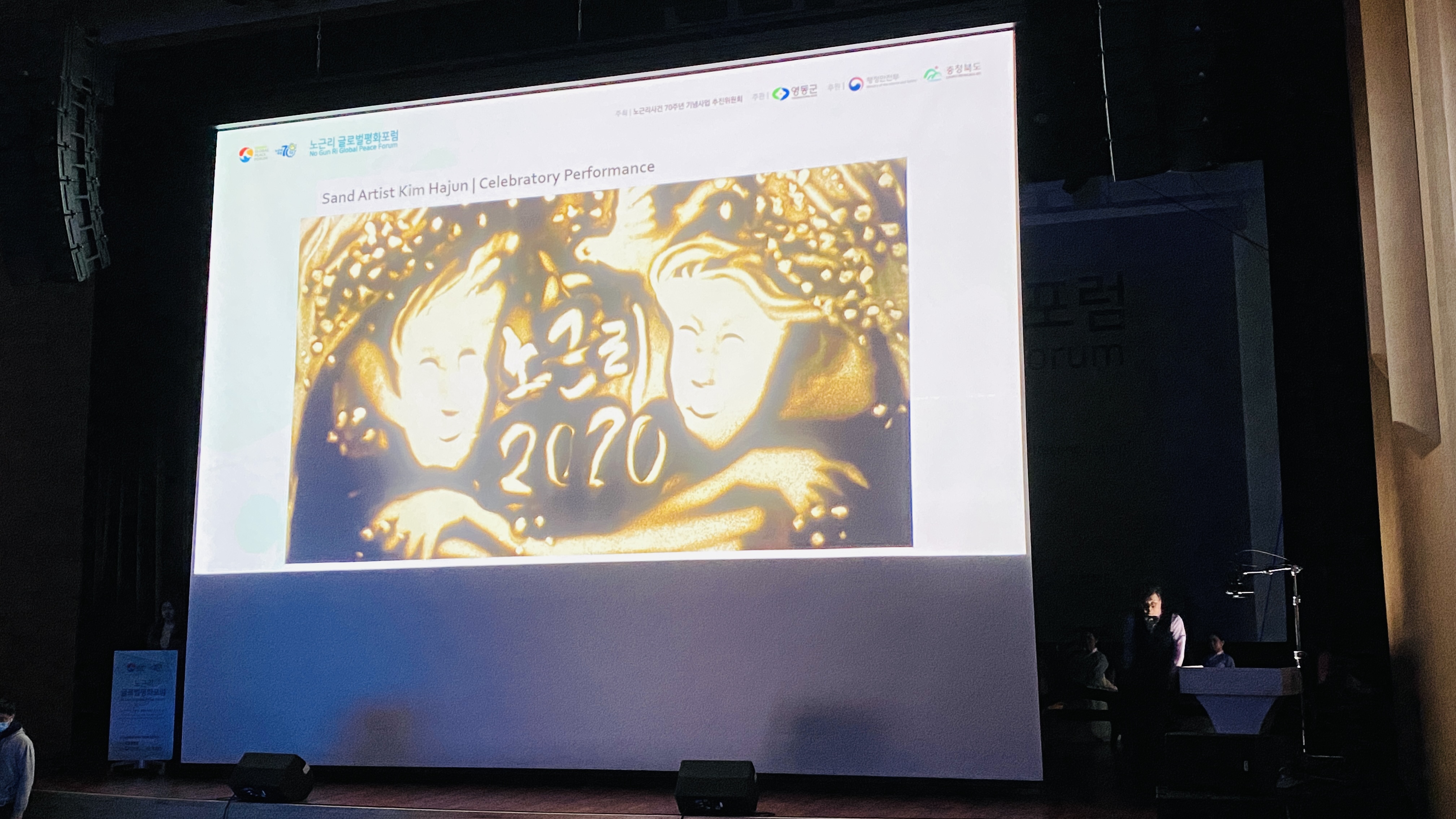
The first day of the forum ended with the giving of peace medals to and letter exchanges among the main guests.
At the end of the event, the forum's chairman thanked those who participated and hoped that 2021 would prove a meaningful year for brotherhood and reconciliation.
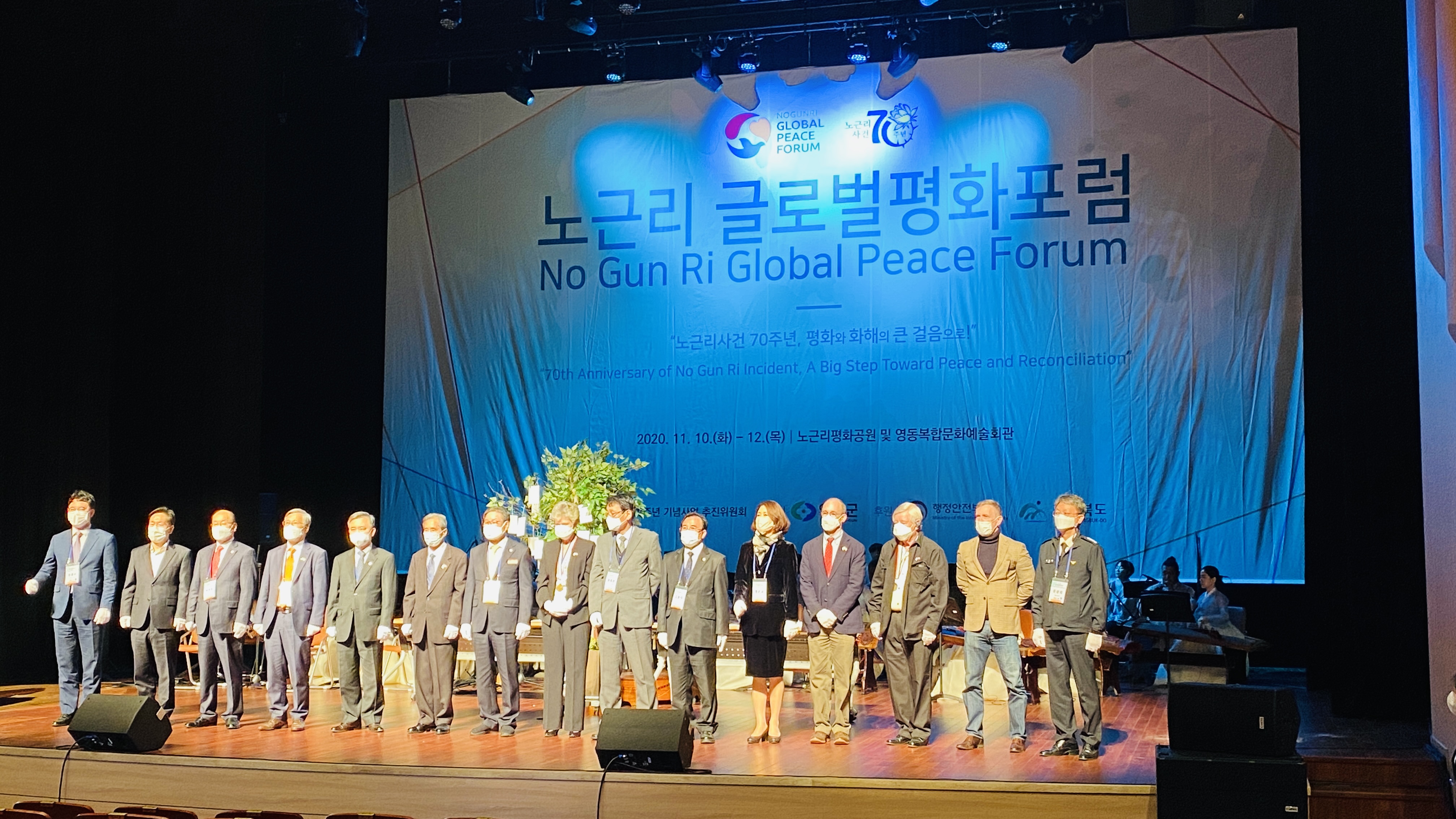
enny0611@korea.kr
*This article is written by a Korea.net Honorary Reporter. Our group of Honorary Reporters are from all around the world, and they share with Korea.net their love and passion for all things Korean.